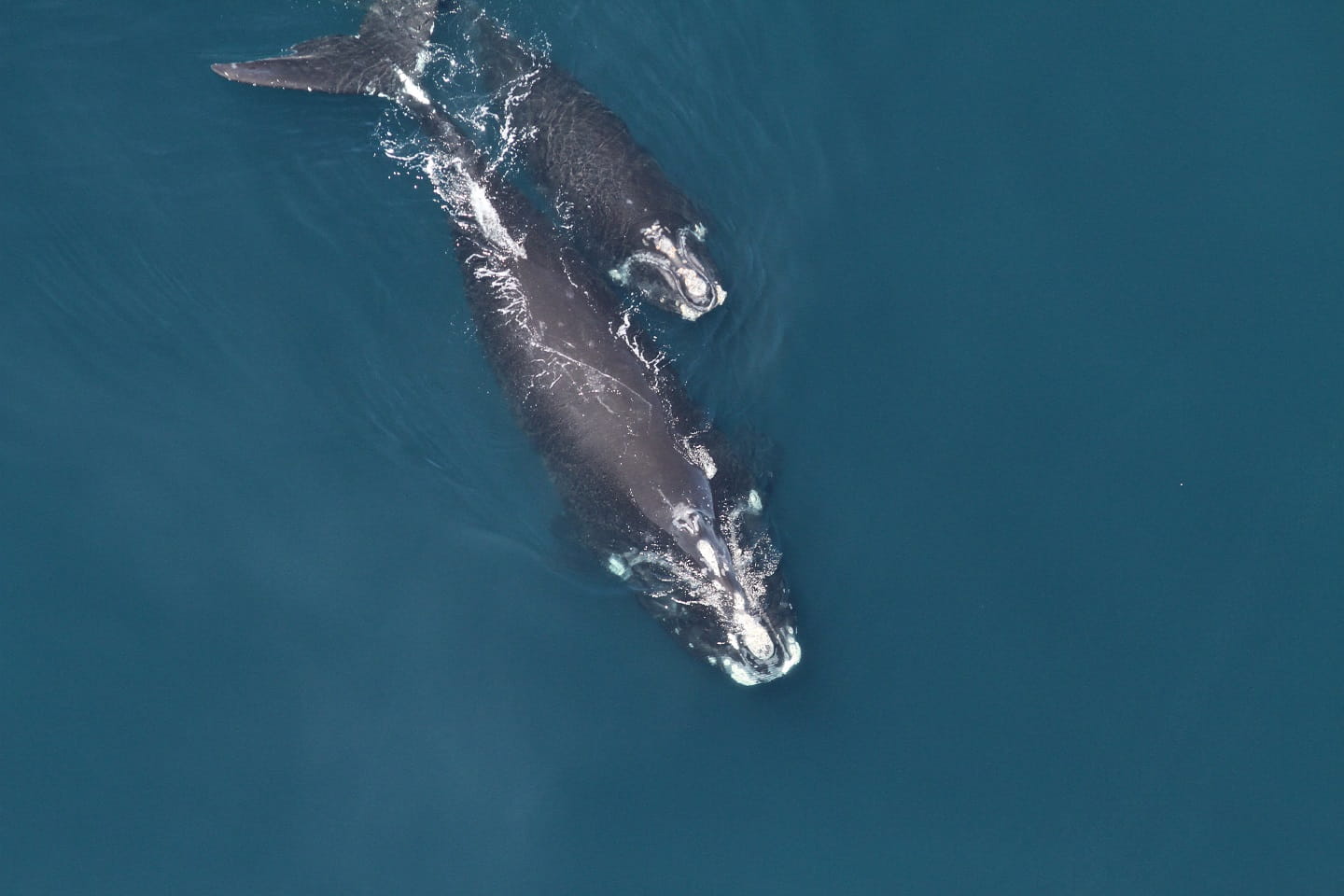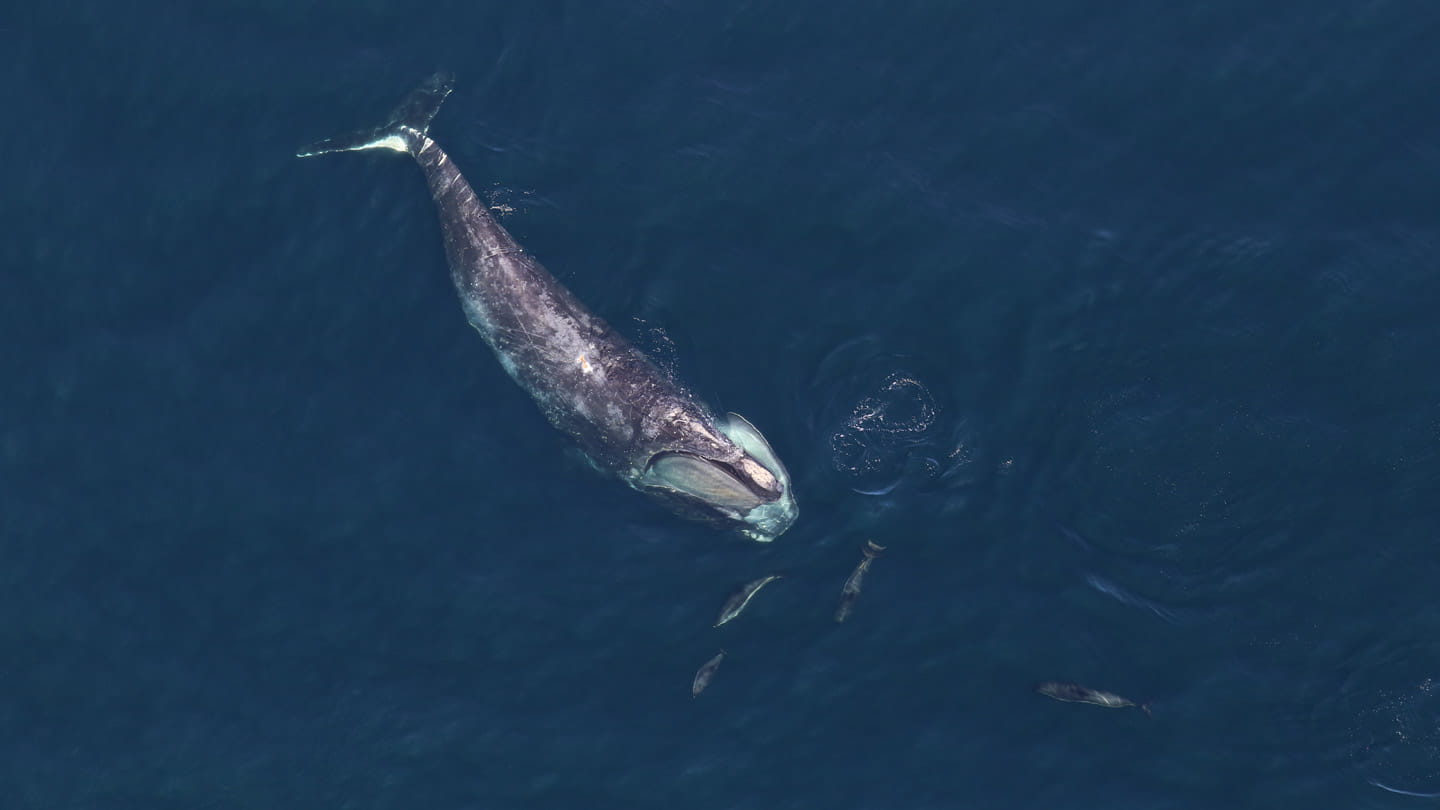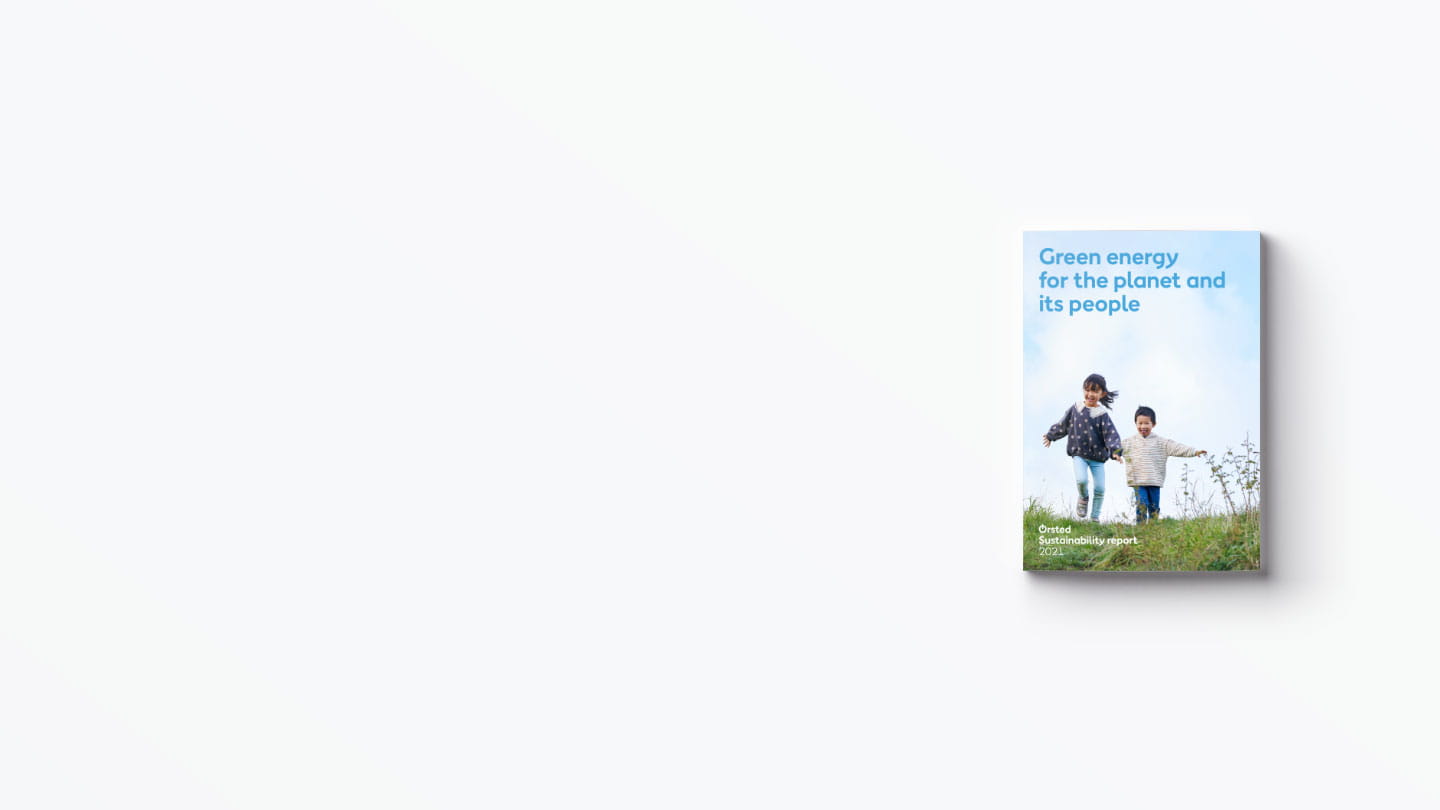
Right whales have faced a long history of exploitation by hunting. Today, they are facing extinction with only a few hundred believed to remain in the North Atlantic.
According to scientists, the recent population decline has been largely due to the result of collisions with marine vessels or rope entanglements from fishing gear.
In the waters where we build windfarms, we seek advice from the marine scientific community. For example, in the U.S. we employ marine biologists to support our environmental permitting teams, our broader sustainability work and to advise us on environmental research & development initiatives.
What we´re doing to protect right whales in the U.S
Since entering the U.S market, the protection of the North Atlantic Right Whale has been on our agenda.
We are:
Funding the WhaleAlert app
Protection of the Right Whales must be a collaborative effort. We are funding an innovative app for a phone or tablet, that tracks rare whales and distributes information to mariners to help vessels avoid collisions. As a result, we´ve contributed to real time awareness of whale sightings and the sharing of information between vessels
Investing in marine mammal tracking software
We´ve invested in the use of a marine mammal tracking software that calculates sightings in relation to our operations, across multiple platforms and vessels. The map display helps to enhance situational awareness of the whales and aids Protected Species Observers to implement mitigation measures
Advancing research
We´ve teamed up with various environmental organizations as well as academia to manage such topics as noise reduction and impact in key habitats
Love your home
Climate change is the biggest risk to biodiversity of our time.
North Atlantic Right Whales feed on some of the smallest organisms, called copepods, which are particularly sensitive to changing sea conditions, effecting ecosystems. These copepods will significantly benefit from an improved habitat over time.
An entirely green future is our vision. But green growth at any cost is not our goal.
We´re also working to ensure we produce green energy sustainably.
Our biodiversity policy, lays out, in a transparent way, our responsibilities for protecting the environment and communities where we work.
In fact, our vision is for a world that runs entirely on green energy.
It´s what lends meaning to our actions, so all the wonderful species that live on our common home – earth – will benefit.


